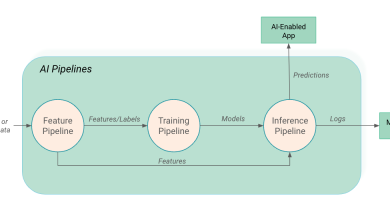
For years, the finance world has approached artificial intelligence (AI) with a healthy dose of skepticism. And understandably so—when you’re dealing with compliance, client trust, and massive datasets, it’s not easy to hand the reins over to a machine. Research conducted by the CFP Board states that only 31% of participants felt comfortable receiving financial advice directly from an AI tool. But that number jumps to 52% when the advice is verified by a financial advisor, showing that AI alone isn’t the answer, but AI paired with human oversight builds real confidence.
With the right training, controls, and implementation, AI is proving to be a reliable partner for financial professionals, not a threat to them. Now the conversation has shifted from “should we trust AI?” to “how can we best use it?”
As we help firms navigate digital transformation, I’ve seen how AI earns trust not through grand promises but through targeted, consistent wins: flagging a rounding error before close of books, pulling real-time insights from disparate systems, or reducing the hours spent compiling tax records. Yet myths still linger for some, slowing down innovation, scaring off decision-makers, and keeping teams locked in manual mode when the future is automated, strategic, and human-led.
Let’s break down a few of the most persistent myths holding finance teams back.
Myth 1: AI Can’t Be Trusted with Financial Data
The truth: AI actually enhances trust through transparency, consistency, and real-time analysis.
Financial data is high-stakes. No one wants to be the person who green-lit a system that gets a decimal point wrong. But that’s precisely where AI shines. Properly implemented AI doesn’t “guess”, it learns from your rules, enforces them without fatigue, and can even flag inconsistencies that might go unnoticed in traditional review workflows.
Modern AI tools in accounting are built with deterministic logic at the core, ensuring that every transaction is tracked, timestamped, and auditable. In fact, many CPAs now rely on AI to increase confidence in their reporting, particularly for tasks like error detection, fraud risk analysis, and ledger reconciliation.
If anything, AI is helping shift the role of accountants from being the last line of defense to being the first to identify insights that drive growth.
Myth 2: AI Tools Compromise Data Privacy
The truth: The best platforms today exceed traditional security standards and are built for compliance from day one.
Data privacy isn’t just a technical issue—it’s a trust issue. And when it comes to financial services, that trust is sacred. It’s no longer enough for a vendor to say their system is secure. AI platforms today must prove compliance through third-party audits, encryption standards, and zero-trust architectures.
Here’s the good news: that’s exactly what’s happening. Many leading AI platforms now offer bank-grade encryption, SOC 2 compliance, and real-time audit logs that give finance teams full visibility into how data is being used and by whom. These tools are safe and are often more secure than legacy systems built a decade ago.
Privacy concerns are real, but they’re addressable. When you choose vendors who treat security as a non-negotiable, you’re not compromising data integrity; you’re enhancing it.
Myth 3: AI Will Replace Human Accountants
The truth: AI frees up accountants to do more of what only humans can: advise, strategize, and lead.
AI can process data faster than any human, but it can’t build relationships, understand a client’s unique needs, or offer ethical judgment. What it can do is handle the high-volume, low-value tasks that too often drain the day: invoice matching, transaction categorization, compliance prep, and extracting and prepping datasets.
What we’re seeing is a rebalancing of the accountant’s role, from just a “scorekeeper” to a true strategist. With AI handling the heavy lifting, accountants can spend more time analyzing trends, advising clients, and collaborating cross-functionally. This isn’t a replacement, it’s reinvention. And it’s long overdue.
Myth 4: New AI Tools Are Too Complex or Expensive to Adopt
The truth: Today’s AI platforms are built for plug-and-play integration and fast ROI.
Not long ago, AI implementation required massive IT overhauls, multi-year roadmaps, and deep budgets. That’s no longer the case. Cloud-native AI tools are now easier to trial, integrate, and scale than ever before—many offering drag-and-drop configurations, out-of-the-box integrations with existing industry software, and dashboards to track business value in real time.
Cost is still a concern, especially for small and mid-sized firms. But the question isn’t “Can we afford to invest in AI?” It’s “Can we afford not to?” When tools pay for themselves in months—not years—by saving time, reducing errors, retaining top talent, and unlocking new revenue opportunities, the business case becomes clear.
Final Thoughts: A Smarter Path Forward
The future of finance isn’t about humanity versus machines. It’s about smart humans using smart tools. AI is becoming less of a “maybe someday” and more of a competitive advantage, especially for firms willing to approach it with clear expectations, the right safeguards, and a commitment to human expertise.
I believe in empowering people with the tools they need to do their best work. Not replacing them. If you’re hesitating to bring AI into your financial workflows, ask yourself: What would you do with 10 more hours a week? What decisions could you make with real-time insight?
AI isn’t the future of accounting. This future is Accountants using AI.





